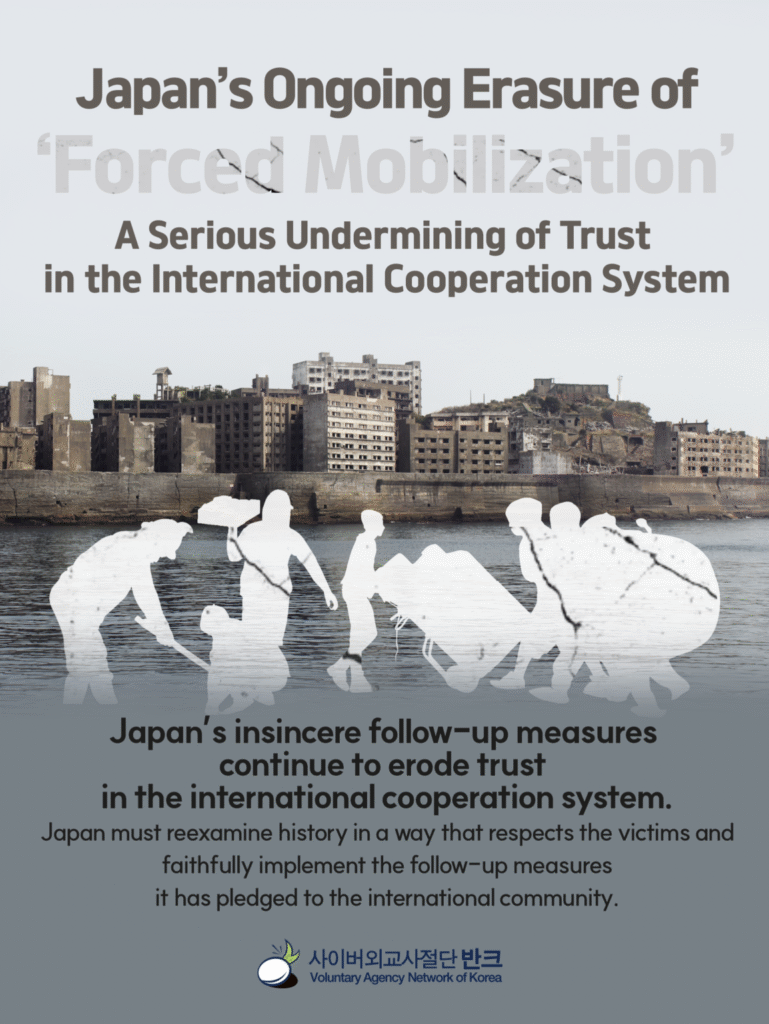
VANK has launched a global campaign criticizing Japan’s failure to address Korea’s concerns in its follow-up report to UNESCO on Hashima Island (Battleship Island), part of the “Sites of Japan’s Meiji Industrial Revolution.” While recognized as a UNESCO site for Japan’s industrialization, these locations were also sites of forced labor during Japan’s colonial rule. Ignoring UNESCO’s request for dialogue, Japan submitted a distorted report instead.
A recent memorial at Sado Mine, registered as a UNESCO site in 2024, highlighted these issues. Japan pledged to acknowledge Korean forced labor but failed to invite victims’ families while allowing officials linked to Yasukuni Shrine to attend. Nearby museum exhibits omit “forced labor” and contain discriminatory descriptions of Koreans.
At the 45th UNESCO World Heritage Committee meeting in 2023, Korea urged Japan to properly recognize forced labor, citing Germany’s Zollverein Coal Mine as an example. However, Japan merely placed reference materials on a bookshelf instead of displaying testimonies of Korean victims, continuing to emphasize industrial value over historical truth.
This is not an isolated case. In 2017, Japan submitted a misleading report on Hashima Island, focusing on industrial achievements rather than forced labor. Despite promising an information center for victims in 2015, Japan built a facility in Tokyo that denied forced labor claims. Beyond Hashima, sites like Yahata Steel Works and Takashima Coal Mine are turned into tourist attractions or shut down to erase history.
VANK’s campaign poster visually represents Japan’s erasure of history, depicting fractured images of victims. It warns that Japan’s actions distort history and undermine trust in international cooperation. The poster is available on the VANK website and Flickr for global distribution, and VANK urges people worldwide to share it.
Park Ki-tae, director of VANK, stressed that Japan’s repeated failure to uphold promises damages its credibility. Youth Researcher Seong Hye-seung called Japan’s actions a continuation of imperialist harm, urging acknowledgment of historical truth.